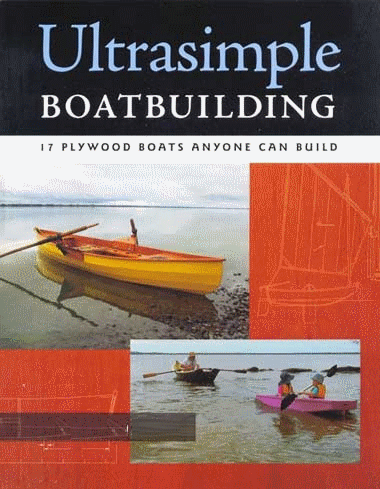

Not to be outdone by the forthcoming second series of ‘The Planners’ on the telly (which, by the way, is going to be re-titled “Not in My Back Yard!”), Uncle Eric has decided that the cameras should be allowed into planning committee meetings and planning hearings and inquiries.
New guidance is to be issued by De-CLoG, which "will make clear the rights for members of the press and public, including local bloggers and hyper-local [?] journalists, to report, film and tweet planning appeal hearings." In a press release, De-CLoG ministers express the hope that “this will open up a previously mysterious and rarely seen side of the planning process”.
The new freedom to record and film proceedings, including the use of digital and social media can be exercised in future in appeal hearings and inquiries, provided that it does not disrupt proceedings. According to the blurb, "Inspectors will advise people present at the start of the event that the proceedings may be recorded and/or filmed, and that anyone using social media during or after the end of the proceedings should do so responsibly."
Pickles is particularly annoyed, because previous guidance he published in June, which was intended to open up planning committee meetings in the same way, has been deliberately ignored by some councils. Unfortunately, he omitted to write this into recent changes to subordinate legislation on the conduct of council meetings, and so he can do no more for the time being other than to huff and puff about it (something Uncle Eric is rather good at doing).
The press release ‘names and shames’ several of the offending councils:
• Wirral Council banned a blogger from filming its planning committee on health and safety grounds, asserting the ban was necessary as they cannot ‘police’ people filming.
• Tower Hamlets stopped a 71 year old resident and OAP campaigner filming a council meeting in June 2013. Council officers asserted that allowing filming could lead to “reputational damage to the authority”
• Keighley Town Council stopped a council meeting when a group of pensioners started to film the meeting and called in the police who escorted the 11 residents from the town hall. Officials argued allowing filming would be a “breach of Standing Orders”
• Blogger Richard Taylor, producing a guide for citizens on how to film meetings, has warned that some councils have demanded identity papers, such as a passport, before allowing filming, and warned “be prepared for the police to be called and the possibility of arrest, especially if you intend to film, photograph, tweet or take notes on a laptop” (Apparently, he was threatened with arrest when he tried to film Huntingdon District Council.)
• Bexley Council has asserted it intends to continue to prohibit audio and visual filming due to its “agreed protocol”
• Stamford Town Council meeting has reaffirmed its ban on a newspaper reporter tweeting from a council meeting, due to “concerns about 140 character snippets of information not accurately portraying a debate”
I have no more sympathy than Pickles with these weak excuses. If meetings are open to the public (as most planning committee meetings must be by law), there can be no reasonable objection to the proceedings being filmed, photographed and recorded, or reported ‘live’ on social media.
On the other hand, if you have attended as many different planning committee meetings as I have, you may well understand the reluctance of elected members to have their ‘deliberations’ broadcast to the great unwashed. The sad fact is that the standard of debate in many planning committees is absolutely dire, and the poor calibre of elected members, their profound ignorance of planning principles and procedures, and general lack of common sense is appallingly obvious. When officers in one authority claimed that allowing filming could lead to “reputational damage to the authority”, their fears may well have been justified!
As for opening up planning inquiries and hearings to the cameras, camera phones and recorders, I rather suspect that interest in recording the proceedings in this way will rapidly wane. It is rare even to see a local print journalist at an appeal hearing or inquiry, and those members of the public who bother to attend mostly drift away by lunchtime on the first day. The plain fact is that for those not directly involved in the process, it is arcane and incomprehensible, and opening it up to the cameras is not going to change that.
Major public inquiries into controversial development proposals might attract the TV cameras, but they will have the same problem as print journalists who have tried to cover these proceedings in the past. The bigger the development scheme, the longer the inquiry, and for journalists and TV crews it is likely to prove as exciting as watching paint dry.
Still, it makes a good silly season story, and Uncle Eric can feel satisfied that he has taken yet another decisive step to improve the planning system. Never mind, that we are still not building more than a tiny proportion of the new homes that are so urgently needed. Never mind that local planning authorities are starved of funds and can hardly cope with their work as a result. And never mind that all Uncle Eric’s previous brave words and stirring deeds have done virtually nothing to make any really significant change to the planning system.
______________
UPDATE (30 August 2013): I am told that Merton Council has begun webcasting various meetings within the past few months, including its Planning Applications Committee (although I am told that after two meetings no further webcasts have been made due to "technical difficulties"). A correspondent has suggested that readers should watch the first three applications presented on 18 April.
The webcasts can be accessed on:
http://www.merton.public-i.tv/core/portal/webcasts
This is not a link, but if you copy and paste this URL into the address line on your browser, the page should open. Don’t panic when you get no sound at the beginning. The camera was switched on before the meeting began, and the sound only starts when the Chairman opens the meeting, 7½ minutes into the recording. (You can move the cursor along to get to this point without having to watch usual the pre-meeting comings and goings in total silence. Alternatively, the menu on the right of the page enables you to go straight to the start of each item. The first application is reached about 10¾ minutes ibnto the recording.)
The 18 April meeting seems fairly typical to me. One thing you’ll notice is that the proceedings might reasonably be described as ‘unhurried’. It takes over 20 minutes, including the planning officer’s introduction, and public statements, before the members of the committee start to discuss the first application around 33½ minutes into the recording.
Anyway, see what you make of it.
© MARTIN H GOODALL




0 comments:
Post a Comment